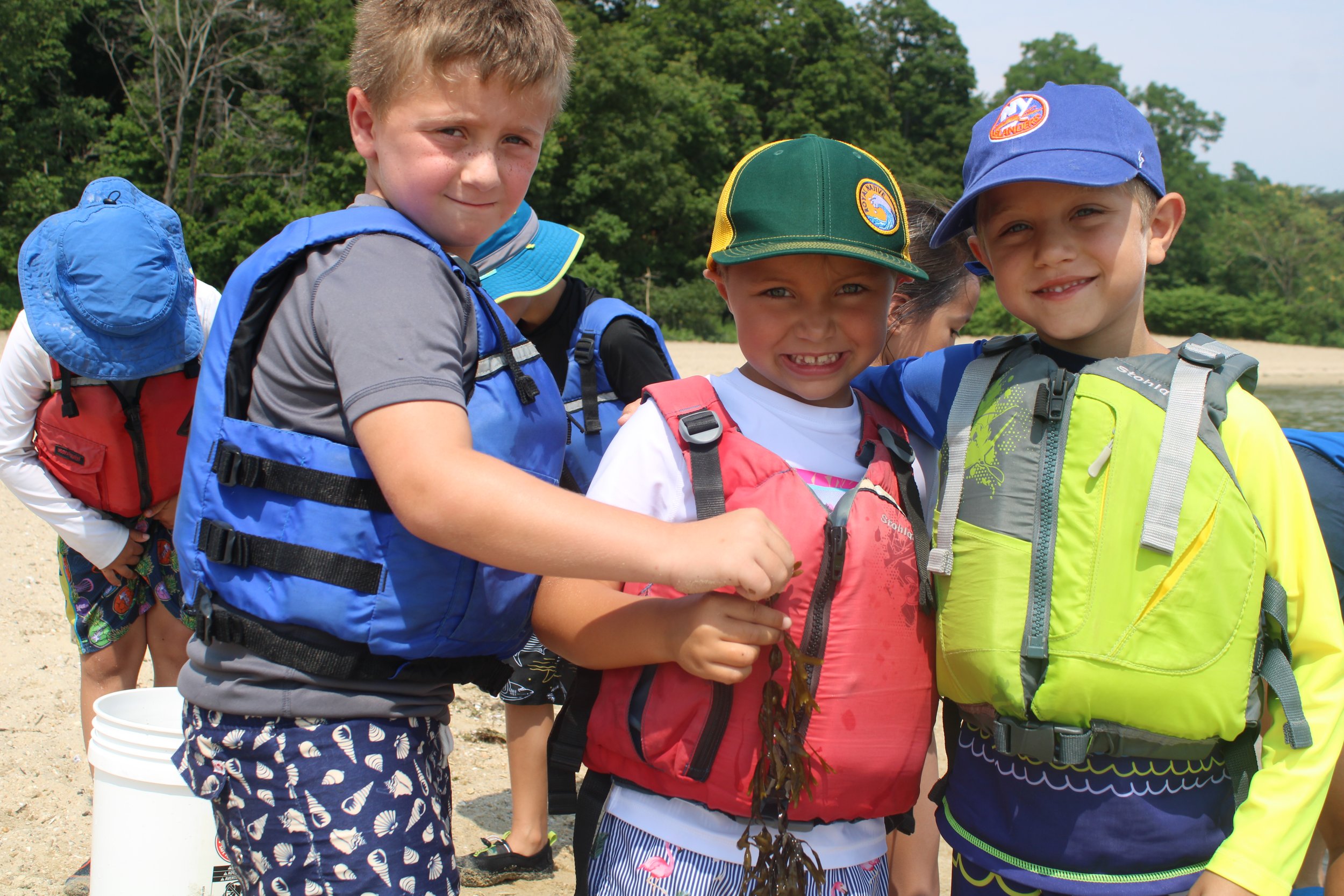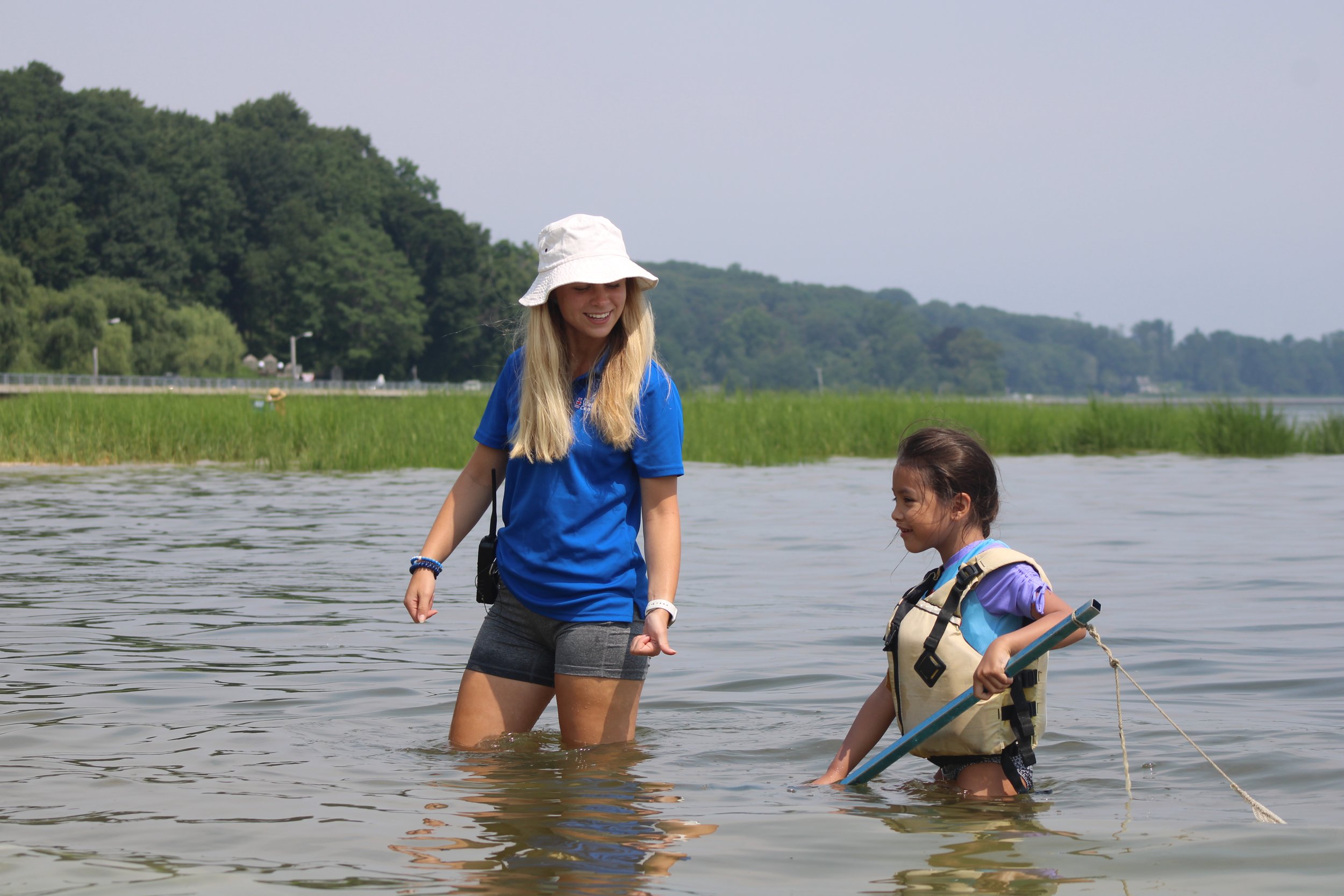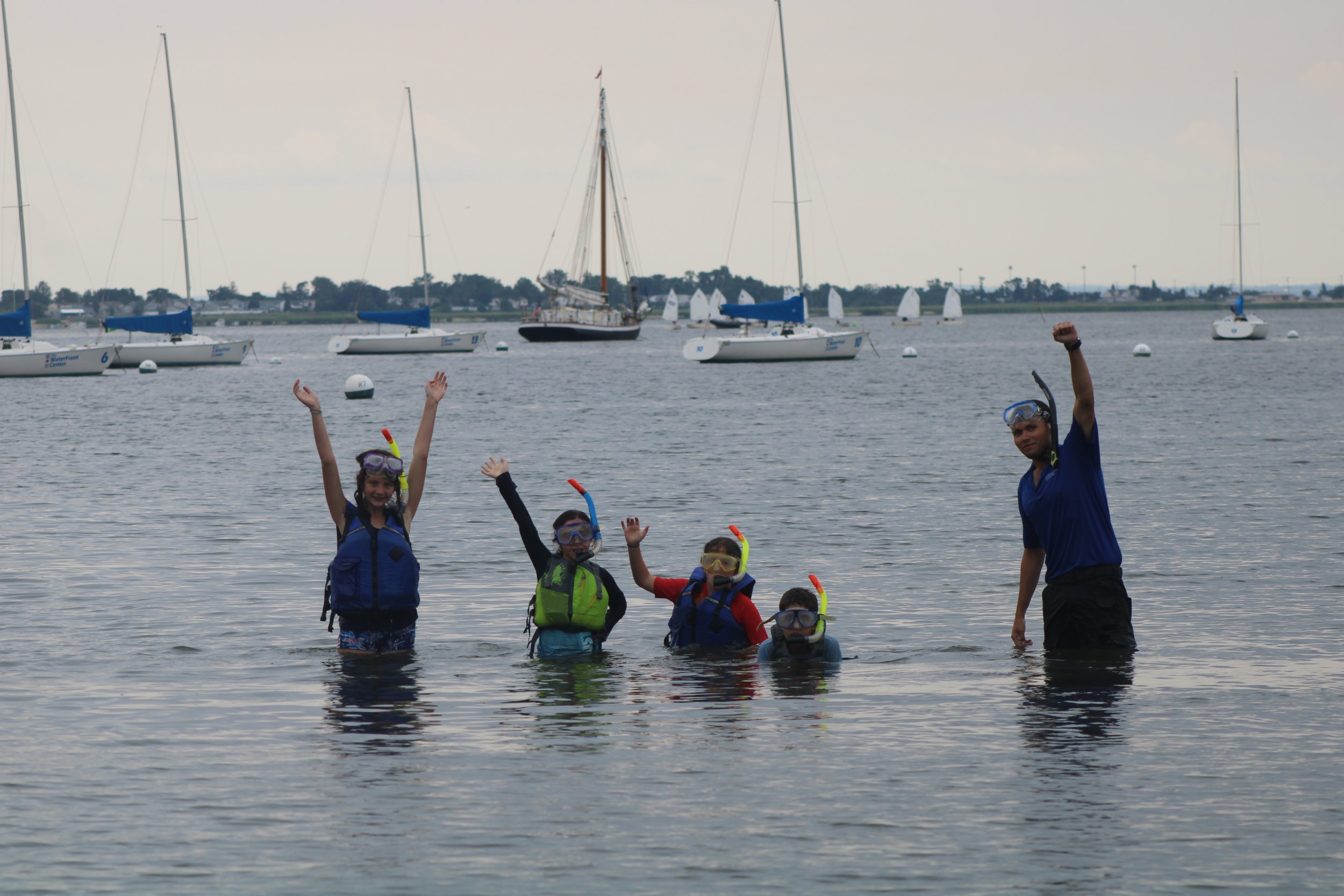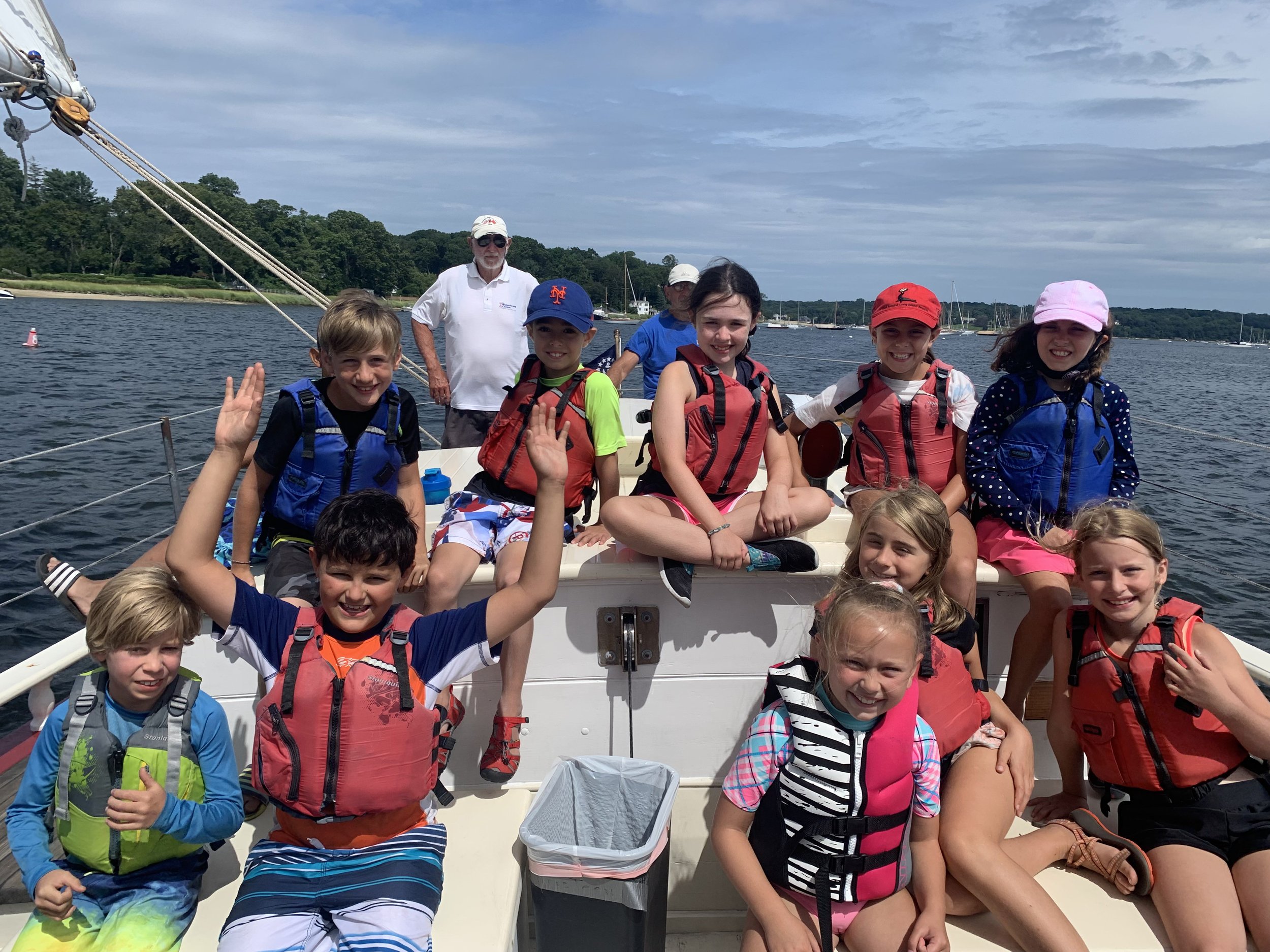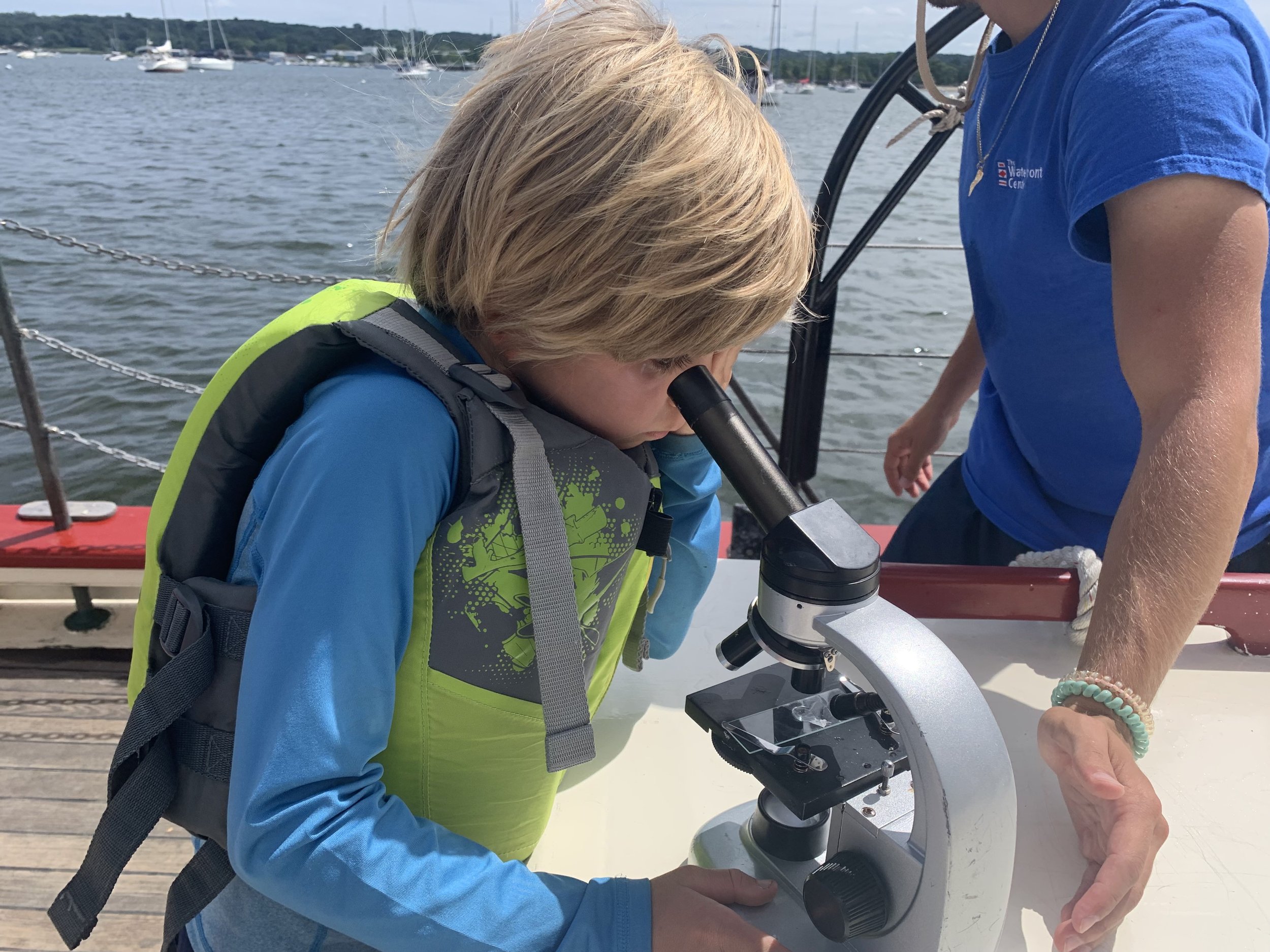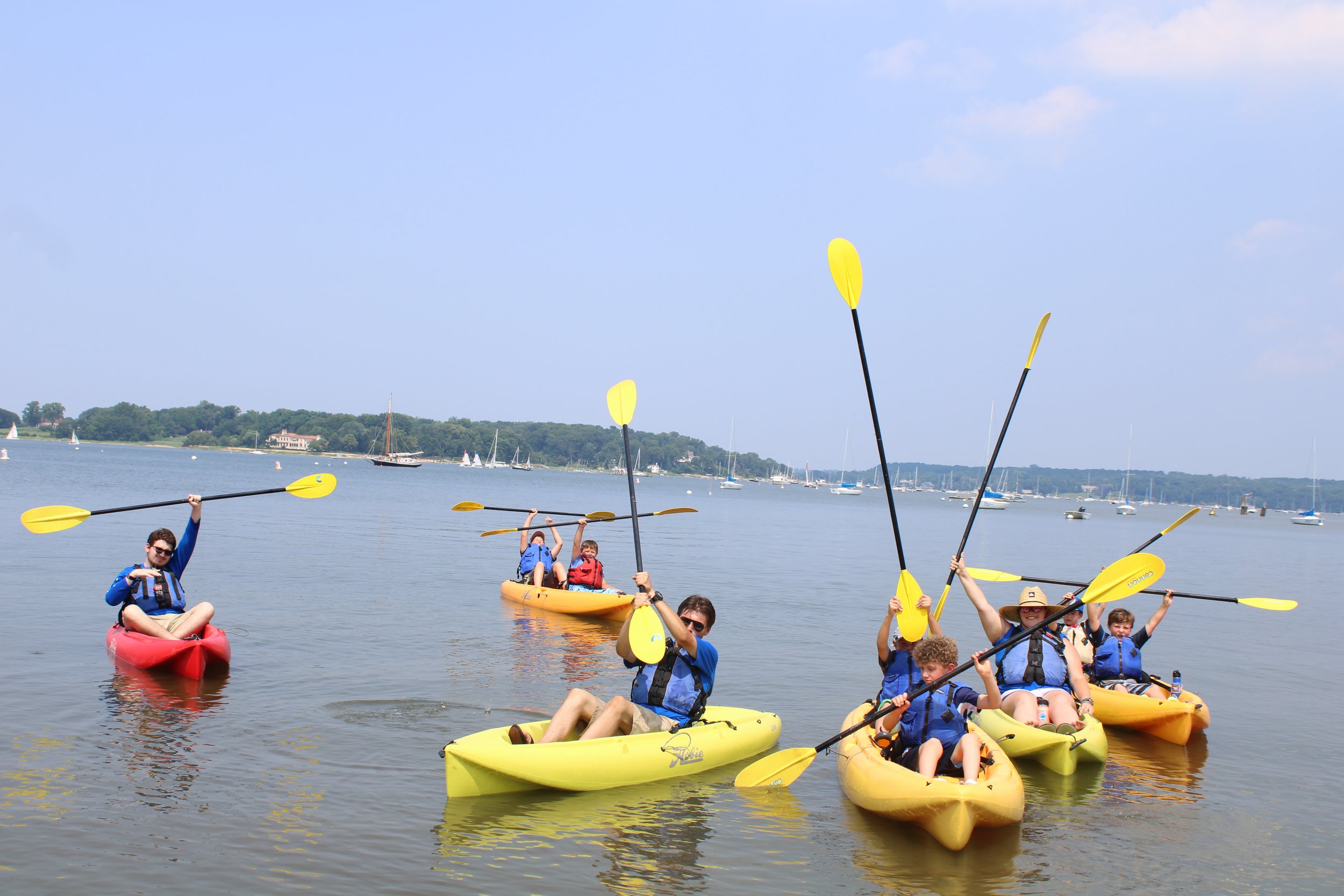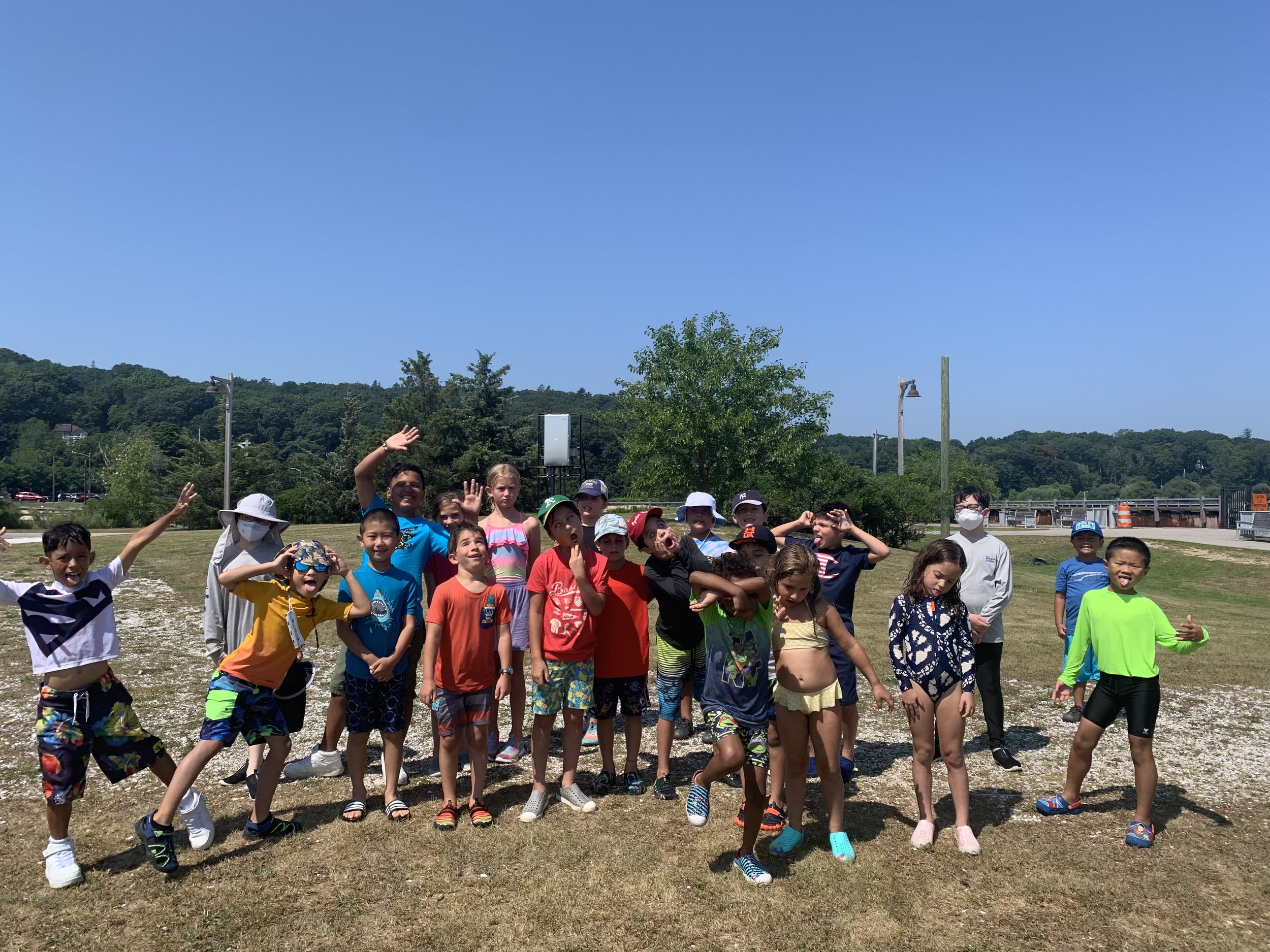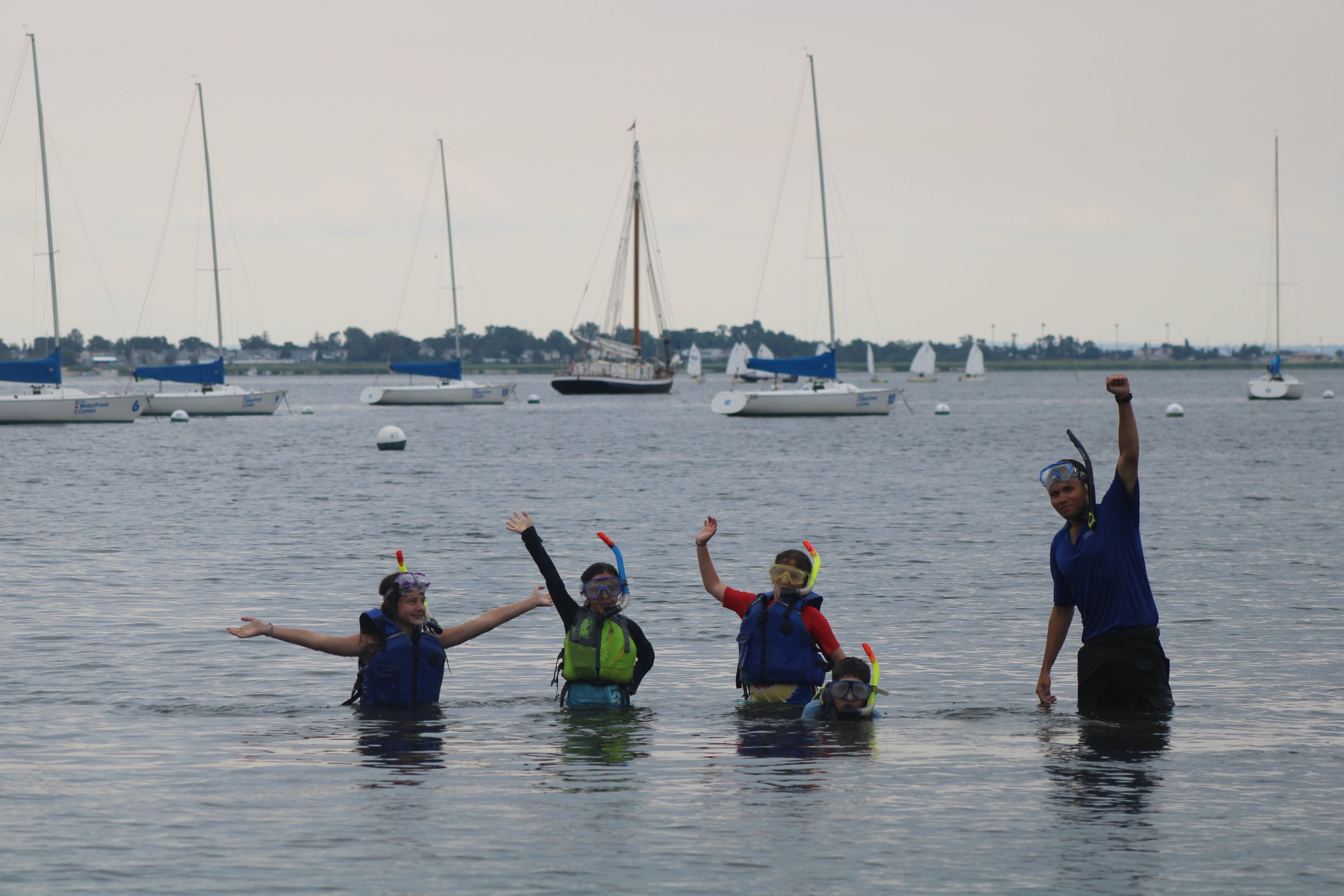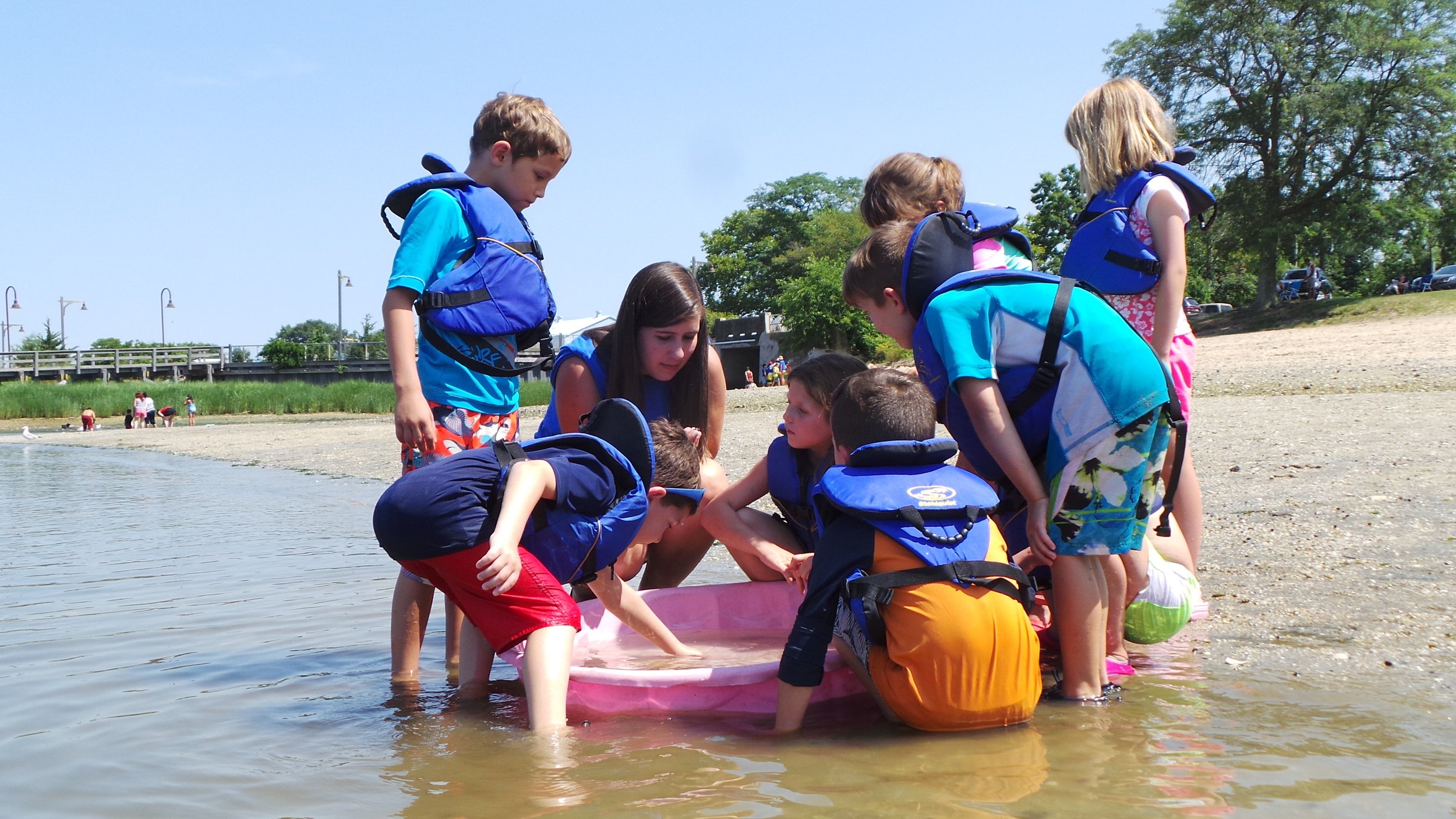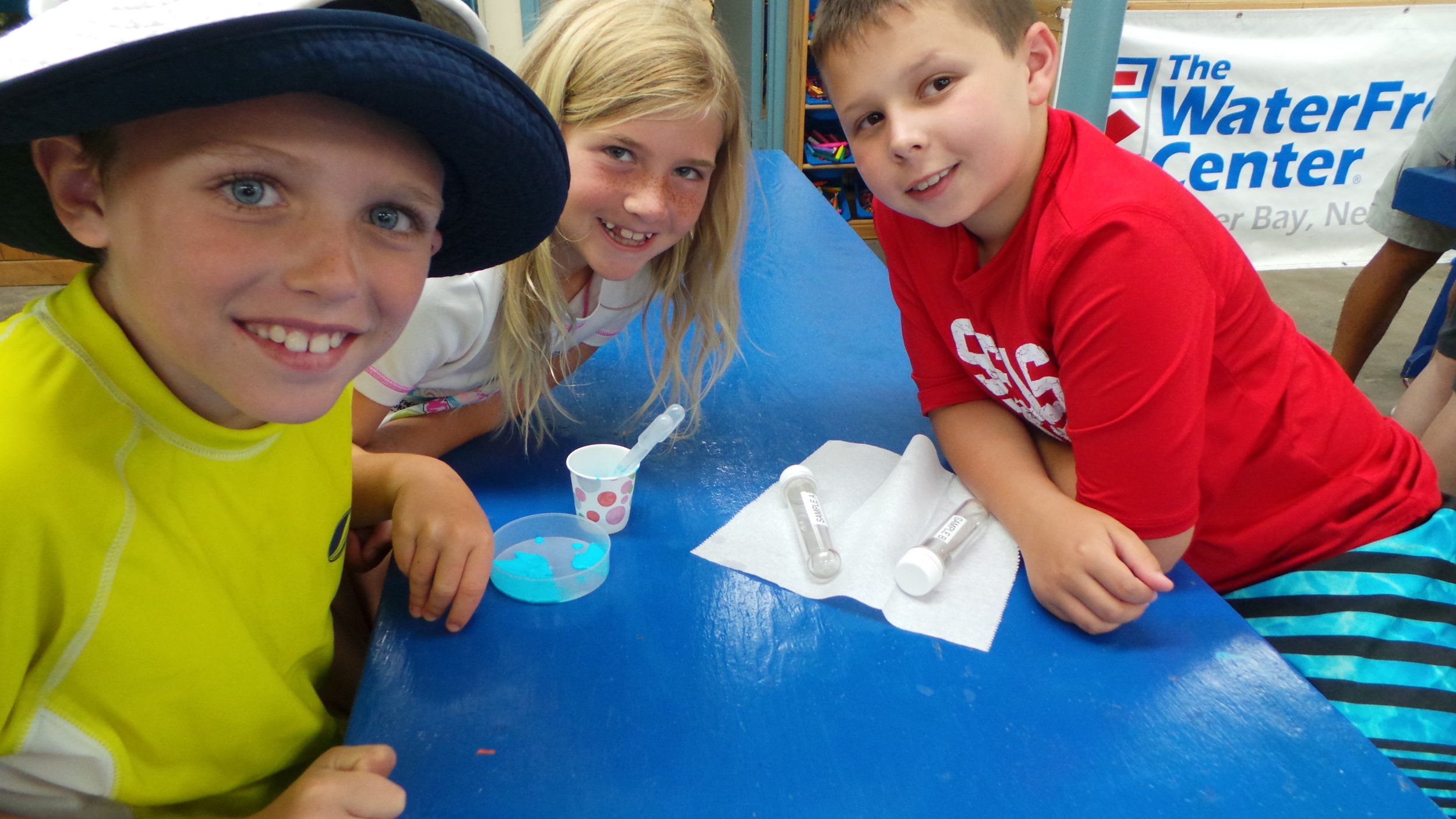Can We Fit All These Activities In One Summer Experience? | Marine Explorer Activity Schedule
Only in Oyster Bay can your child explore salt marshes atop kayaks, encounter wildlife in their natural habitat, and conduct experiments on a historic oyster sloop. Our expansive and newly revamped curriculum introduces new topics based on the 7 Principles of Ocean Literacy each week. Developing our students' understanding of the Ocean is essential to protecting our planet and cultivating the next generation of environmental stewards.
The Marine Explorers Summer Program is broken down into grade-based groups; Bay Buccaneers (going into grades K -2), Sound Swashbucklers (going into grades 3 & 4), First Mates (going into grades 5 & 6), and Skippers (going into grades 7 - 10). Every week each group will participate in seining, fishing, sniggling, kayaking, and sailing on Christeen. In addition to these activities below is a deeper look at the weekly themes our "Marine Explorers" will investigate as the summer progresses.
Week 1: Blue Planet - Earth has one big ocean with many features
Did you know that all of Earth’s oceans are connected? Your child will explore the Ocean's physical features, properties, and forms. The Ocean is an essential part of the water cycle and can be connected to Earth’s water reservoirs via evaporation, precipitation, and leading into watersheds. Children will learn about the different densities of fresh and saltwater temperatures and densities and how they may affect everyday life. They will participate in STEM activities that challenge your mind to understand how density changes with different water solutions and how the continents were once one landmass. On the beach, they will take part in water quality experiments, explore the tide lines and currents, as well as much more!
These are some of the topics that will be covered in each group this week:
Bay Buccaneers (Going into grades 1-2)
Salinity
Density with salt water and fresh water
Paper clip challenge
Tides
Watersheds
Sound Swashbucklers (Going Into grades 3-4)
Salinity
Paper clip challenge and density
Temperature of water
Water cycle and watershed
First Mates (Going into grades 5-6)
Density of water
Tectonic plates
Paper clip challenge and density
PH
Supercontinent
Watersheds
Sea level rising
Skippers (Going into grades 7-9)
Density
Watersheds
Salinity
PH
Currents
Glacial displacement
Week 2: Beaches and Coasts - The ocean and life in the ocean shape the features of the Earth
Different types of materials and geochemical cycles on Earth originate in the Ocean. Children will learn about how sea-level changes influenced continental shelves and created different surfaces on land and why our coastal areas vary in profile throughout the seasons. They will discover how many different particle sizes there are in the sand by sifting through the sand. Water in motion, like the Ocean, will constantly carry materials from one place to another, especially in coastal zones or areas.
These are some of the topics that will be covered in each group this week:
Bay Buccaneers (Going into grades 1-2)
Deposition of earth materials
Erosion of earth materials
Marine fossils
Sound Swashbucklers (Going Into grades 3-4)
Erosion
Sedimentation
Filtering sediments
Marine fossils
Sand formation
First Mates (Going into grades 5-6)
Physical weathering
Tectonic activities
Rock cycle
Volcanoes
Skippers (Going into grades 7-9)
Beach profiles changing seasonally
Rock cycle
Bathymetry boxes – underwater exploration
Sonar
Week 3: Weather and Global Climate Change: The ocean is a major influence on weather and climate
The Ocean has a significant influence on climate change by absorbing, storing, and moving heat, carbon, and water. Changes within the ocean’s circulation have produced large, abrupt changes in climate for the last 50,000 years. Children will learn how the oceans affect our environment. They will understand water and its natural cycle and investigate the causes of weather patterns. Explore the formation of clouds with experiments and create their own 3D ones to take home! Children may design their own blades for wind turbines and learn about how important renewable energy sources are.
These are some of the topics that will be covered in each group this week:
Bay Buccaneers (Going into grades 1-2)
Anemometers
Puffy clouds
Water cycle
Cloud in a jar
Sound Swashbucklers (Going Into grades 3-4)
Anemometers
Cloud in a jar
Puffy clouds
Water cycle
Sun dial/ bearings?
El nino and la nina
First Mates (Going into grades 5-6)
Wind turbines
Water cycle
Solar still
Sun dial/ bearings?
El nino and la nina
Skippers (Going into grades 7-9)
Wind turbines
Water cycle
Solar still
El nino and la nina
Week 4: Shapes of Life - The Ocean Makes Earth Habitable
Did you know that algae is the Earth’s most abundant source of oxygen? Children will explore how the ocean made the Earth habitable. They will collect plankton and then study them up close through microscopic lenses and see the animals that originated life! Explore the habitats within Oyster Bay and take samples of algae to press them and then have some art to take home with you. Learn about the first lifeforms, animals that are now extinct, and how we have been able to classify them over the years.
Bay Buccaneers (Going into grades 1-2)
Animal kingdom
Plankton, create your own
Photosynthesis
Plankton tow
Algae and aquatic plants
Algae presses
Skippers (Going into grades 7-9)
Animal kingdom
Ocean acidification
Make your own plankton tows
Plankton id & bio blitz
Extinct animals
Sound Swashbucklers (Going Into grades 3-4)
Animal kingdom
Photosynthesis
Algae presses
Plankton tow – look at a microscope
Extinct animals
First Mates (Going into grades 5-6)
Animal kingdom
Make your own plankton tows
Plankton id
Extinct animals
Week 5: Life under the Sea -The ocean supports a great diversity of life and ecosystems
Children will become familiar with different types of marine animals within our bays and oceans and estuaries. Explore our freshwater stream and what animals may live there and why that ecosystem is different than brackish waterways. Learn about our beloved horseshoe crab and how long it has been on Earth and what benefits it provides. Meet all different species of crabs found within Oyster Bay, native and invasive. Connect animals with one another and understand their diets.
These are some of the topics that will be covered in each group this week
Bay Buccaneers (Going into grades 1-2)
Make a fish
Bioluminescence and craft
Estuaries- animals found within and fiddler crabs
Sea turtle facts and craft
Adaptations
Freshwater versus saltwater life – sniggling
Whale dimension comparisons
Horseshoe crab lesson and craft
First Mates (Going into grades 5-6)
Horseshoe lesson and craft
Food webs
Adaptations
Freshwater versus saltwater life- sniggling
Sound Swashbucklers (Going Into grades 3-4)
Sea turtle species
Adaptations
Coral reefs
Estuaries- animals found within and fiddler crabs
Freshwater versus saltwater life – sniggling
Horseshoe crab lesson and craft
Skippers (Going into grades 7-9)
Coral bleaching
Niches
Zonation patterns
Estuaries/ nurseries – create your own
Abiotic versus biotic factors
Week 6: The ocean is our friend - The ocean and humans are inextricably interconnected
Ever wonder how marine species play a role in our lives besides making appearances on your lunch and dinner menus? Children will explore the deep connections between the ocean and humans. They will learn how we can help with the Ocean’s health in many ways and protect our waterways as well as how our Ocean and life within it benefits humanity.
These are some of the topics that will be covered in each group this week:
Bay Buccaneers (Going into grades 1-2)
Mimicry and camouflage
Oysters and cleaning water
Dam building
Sound Swashbucklers (Going Into grades 3-4)
Oysters and cleaning water
Horseshoe crab blood
Renewable resources / nonrenewable resources
First Mates (Going into grades 5-6)
Oysters and cleaning water
Horeshoe crab blood
Overfishing
Algal blooms
Natural disasters aftermath
Skippers (Going into grades 7-9)
Oysters and cleaning water
Overfishing
Fisheries
Ocean acidification
Natural disasters aftermath
Algal blooms
Week 7: Into the Abyss - The ocean is largely unexplored
We think we know so much about the ocean, but in reality, we have only explored less than 5 %. Understanding the ocean's vastness isn't only about curiosity; it's appreciating all life beyond what we already know. Children will dive deep into the unexplored regions of the ocean. They will learn about deep-sea life, imitate how biologists explore the abyss with ROVS, and discover what it takes to navigate with a compass on the high seas!
These are some of the topics that will be covered in each group this week:
Bay Buccaneers (Going into grades 1-2)
Mythical sea creatures
Make your own sea legend
Hidden Messages
Treasure Hunt
Sound Swashbucklers (Going Into grades 3-4)
Build own ROV and race them, collect rings
Mythical sea creatures, make your own
Different ocean depths and animals you can find at them
Compass navigation
First Mates (Going into grades 5-6)
Build own ROV and race them, collect rings
Mythical sea creatures, make your own
Different ocean depths and animals you can find at them
Compass navigation
Skippers (Going into grades 7-9)
Mythical sea creatures
Make your own Sea Legend
Make your own compass navigation
Lost at sea
Week 8: Save the Sound - Learn about stewardship of the Earth and maintain the environment for future generations.
Children will explore the effects that humans have had and will have on earth over time. They will explore pollution, microplastics, and decomposition. Children will learn about different ways that we can prevent litter and pollution in the future to keep our planet healthy and strong!
These are some of the topics that will be covered in each group this week:
Bay Buccaneers (Going into grades 1-2)
Beach cleanup
Rozalia Project follow up
Microplastics Activity
Pollution Pond
Decomposition
Sound Swashbucklers (Going Into grades 3-4)
Beach cleanup
Rozalia Project
Recycled boat race
Microplastic lesson and game
First Mates (Going into grades 5-6)
Beach cleanup
Recycled boat race
Rozalia Project
Microplastics lesson and game
Decomposition
Skippers (Going into grades 7-9)
Beach cleanup,
Rozallia Project
Recycle boat race
Follow our journey on social media!

